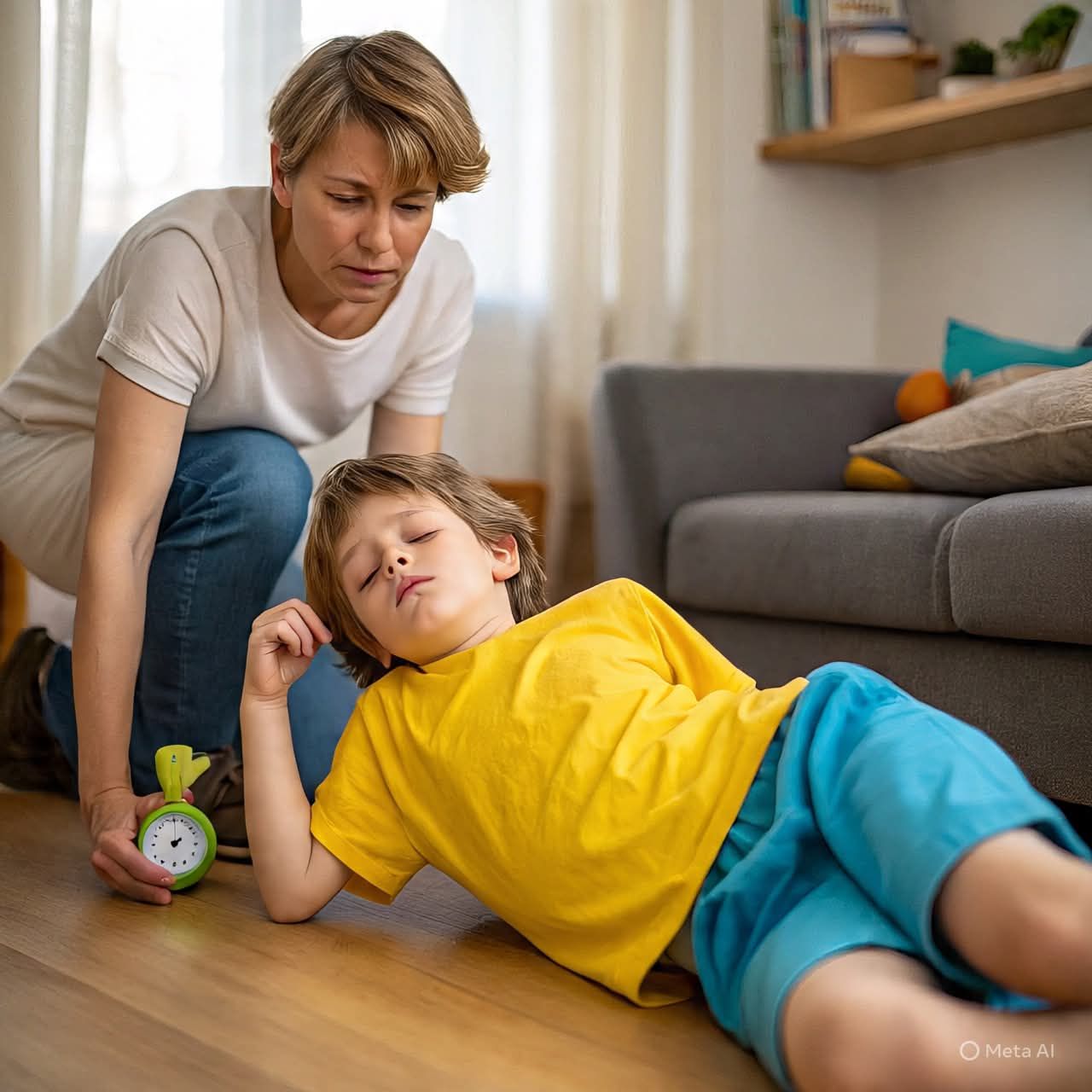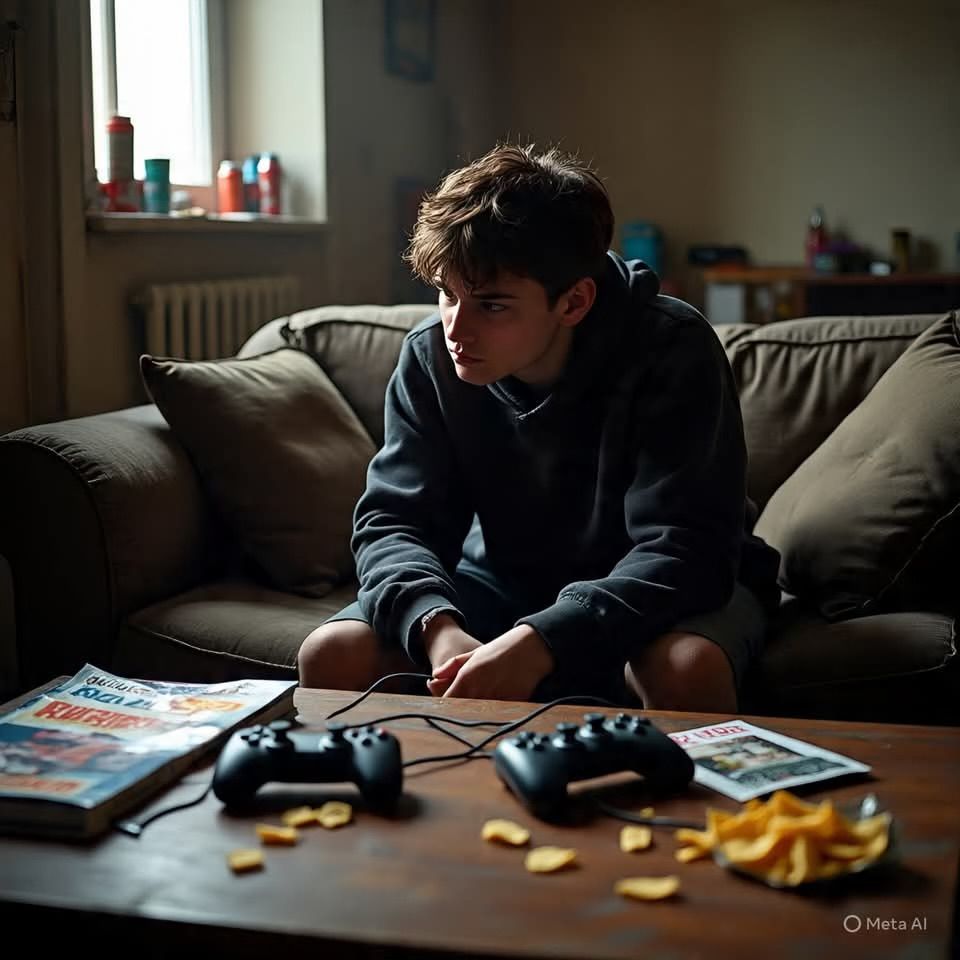The Emotional Ferris Wheel: Staying Calm When Your Child is Dysregulated
On Sunday evening my daughter came home from a birthday party in floods of tears. She was inconsolable, struggling for nearly ten minutes to even get her words out. My mind ran through all the possible dramas - had she fallen out with the friend? Been left out of a game? Someone bullying her at school? Finally, through sobs, the cause of her intense emotional upheaval emerged: she wished it had been a sleepover as she’d had so much fun.
Now it did take me a moment to calibrate to the correct scale of human tragedy, from natural disasters on one end to the non-extension of birthday parties at this end. But hey, we are each only living life from our own perspective after all. And in her defence, it was a pretty fun party, and a lovely new friendship that seems to be going really well. Plus she’s 7 of course, and it’s her second late night in a row.
I wouldn’t be a Psychologist if I didn’t also consider that there may have been deeper layers, like the fact that she’s just changed schools, or that her closest playmate in our household is six years younger.
I guess what struck me most was the fact that a seemingly small trigger had caused such a storm of feelings. I did manage to stay patient and hear my daughter out, but it reminded me of how often I hear my patients talk about how their child also gets intensely distressed about seemingly minor upsets. I can relate to their frustration as well to a degree, since the impatient part of me was yearning for her to be in bed so that I could enjoy a bit of well earned Sunday evening chill time.
Since we’re all human, there’s always that part of us that wants to respond in a more impatient or frustrated way, since it’s often the last thing we feel like dealing with in that moment right before bed-time.
However, this blog post is about trying to find a more connected, patient, and effective response. The reality of parenting is: our children’s emotions are complex, often overwhelming, and rarely convenient. The way we respond to these moments sets the tone for how our children will learn to navigate their feelings, and whether they will choose us as a trusted guide to help them.
Why Staying Calm Is So Hard for Parents
When our child is emotionally dysregulated, it’s easy to lose patience. Here are some common reasons:
- It feels disproportionate. Parents often think, “This isn’t a big deal, it seems so silly- why are you so upset?” or “should we really condone this type of reaction?”
- Comparison. You might notice other children don’t react as strongly to similar situations.
- Your own upbringing. Many of us weren’t given much sympathy when upset, so it can feel foreign to offer it now.
- Fears for the future. Parents sometimes worry, “If my child melts down over this, how will they cope later in life?”
- Repetition. After dozens of similar upsets, frustration easily builds.
- Sheer exhaustion. At the end of a long day, patience runs thin, and sometimes you just want quiet.
All of these reactions are normal - but if we let them drive our response, we risk escalating the situation, or on a more basic level the missing an opportunity to connect with our child in a difficult moment.
Why Calm Matters
Getting annoyed or impatient rarely helps. In fact:
- Anger fuels more upset. Children often cry harder or lash out when they sense their parent’s frustration.
- It can create shame. Kids may internalize the idea that their emotions are “too much” or “wrong.”
- It blocks learning. Emotional regulation isn’t taught through lectures or punishment - it’s absorbed through modeling.
Staying calm doesn’t mean ignoring your child’s distress, and nor is it about letting the situation get completely beyond your grasp. It means anchoring them while the storm passes. And once it starts to pass, they are much more likely to be receptive if you feel there’s a ‘teachable moment’ to be had.
The Ferris Wheel of Emotions
I like to imagine emotional processing as a giant Ferris wheel.
- The climb up: Emotions are building, and distress rises quickly.
- The peak: This is the most intense part—loud crying, big feelings, sometimes anger.
- The descent: Once feelings have been acknowledged and validated, the intensity gradually eases until the child feels grounded again. Sometimes you can gently help them come down if they’re struggling to pull themselves back: but other times you won’t need to.
Overall the parent’s role is not to fast forward, reverse, or somehow cancel the ride: instead we climb on board, we gently guide things along as needed, and we wait for the cycle to run its course.
Practical Up And Down Strategies
- Trust the cycle. Most intense upsets last 20–30 minutes, not hours. Remind yourself: this will pass.
- ‘Lean in’ to the emotion. Instead of rushing to calm them, validate their feelings:
- “You really wanted that climbing frame, didn’t you?”
- “It feels unfair when someone else has something you wish you had.”
- Guess if needed. If they won’t tell you what’s wrong, make gentle guesses until you land close to the truth and you might see a few little nods of the head.
- Respect sensitivity. Some kids are wired more intensely. The upside is they’re often more empathic and perceptive. Research shows that when these children are validated, they often become well-adjusted adults.
- Guide down gently. Once they’ve been heard (but not before!), you can help them move forward if needed:
- Suggest a calming strategy (slow breaths, a hug, a drink of water).
- Offer perspective (e.g. “Remember, we have only just moved in - maybe we’ll get monkey bars one day too”).
- Transition to the next routine (e.g. bath, bedtime). There does need to be that gentle bit of accountability once it feels realistic and fair to bring it in.
- Remember “fast is slow.” Trying to rush a child through their feelings often backfires. Paradoxically, patience shortens the process.
Final Thoughts
Parenting a sensitive, emotional child can feel like a never-ending cycle of ups and downs. But if you can stay calm, validate their feelings, and gently guide them through, you teach your child one of life’s most important lessons: emotions are not to be feared, ignored, or shamed. They are to be understood, accepted, and eventually managed with mastery and self awareness.
If you can ‘sit with’ your child’s big emotions you’ll find a more enriching bond and shared understanding. Hopefully they’ll choose to come to you in the difficult moments, trusting that you’ll create an emotionally safe space.
So next time you sense another emotional Ferris wheel coming along, try to ride it all the way round - the gains in closeness and emotional maturity will be worth it.









